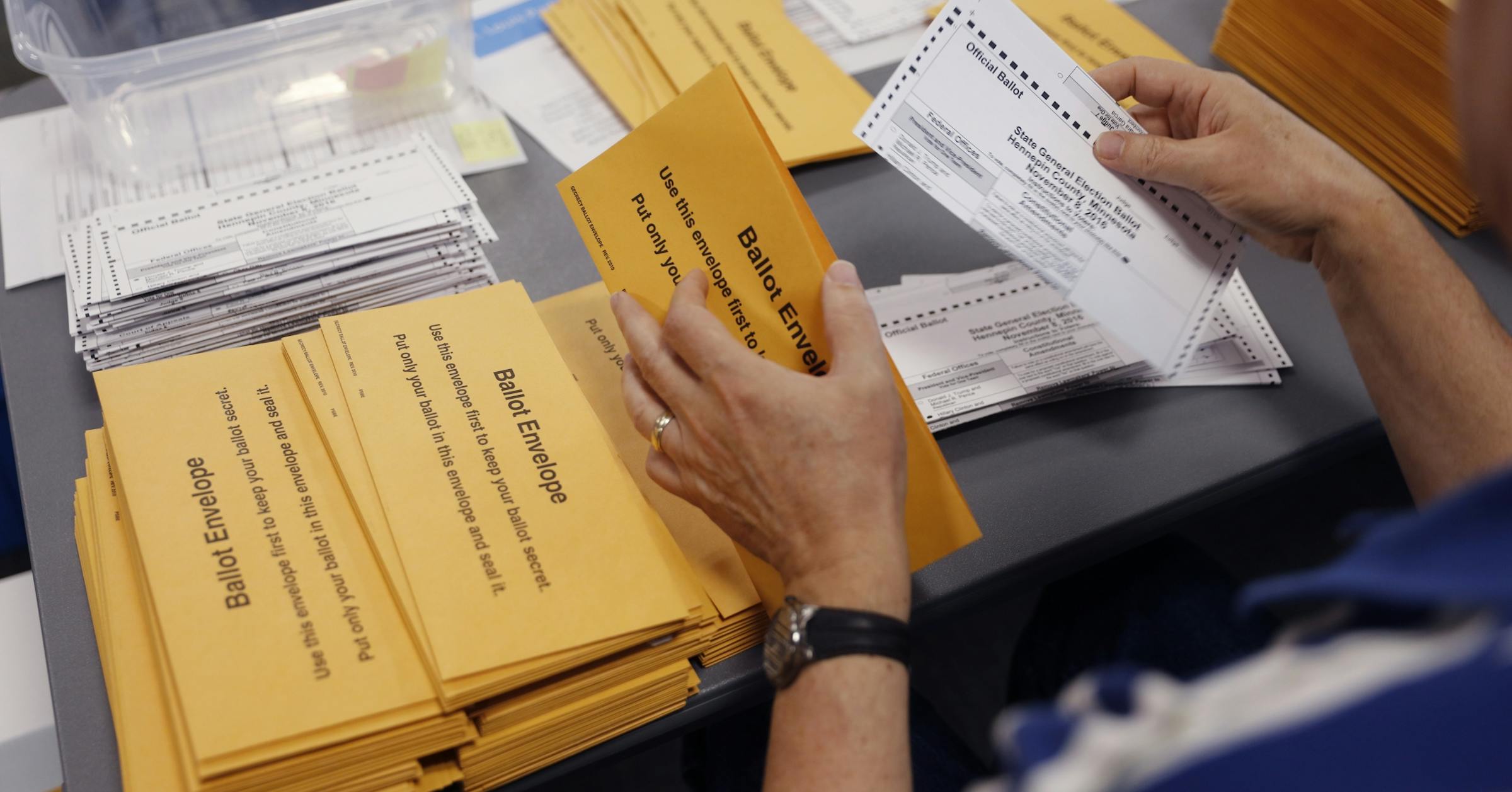Star Tribune
Metro cities buying fencing to separate protesters, police

Cities and law enforcement agencies in the metro over the past several weeks have joined a group that plans to lease or buy fencing designed to thwart attacks on police stations.
The effort is rooted in the fear that what happened at the Minneapolis Third Precinct station during unrest following the police killing of George Floyd could happen elsewhere.
The “anti-scale” fencing is hard to climb, doesn’t tip easily and reduces the need for officers armed in riot gear, said Mark Ray, the Crystal public works director who was among a group who brainstormed the idea to have cities collectively buy fence.
It’s too expensive for most cities to buy such fencing, but by working together in what Ray calls the Fencing Consortium the cities would pay somewhere between $5,000 and $16,000 a year to maintain and store fencing at a metro warehouse, said Ray. The price range reflects the differing amount of fencing each city needs to encircle its police station. The assumption is that only one or maybe two cities at a time would ever need to deploy it.
“It’s a de-escalation tool,” said Ryan Murphy, of the St. Paul Police Department, which is a consortium member. The fencing protects the police station in the event of a quickly formed protest, but by keeping the protesters and police officers apart, it also helps prevent the protest from escalating into a confrontation.
The fencing is not available for concerts or planned protests, but exclusively for so-called “no notice” events that arise spontaneously, Ray said.
The anti-scale fencing is 8 feet tall and 4 feet wide; the sections interlock to form a wall. The fencing has gaps that are too small for fingers, making it hard to climb. A base extends on both sides of the fence by a couple of feet, and if people stand on the base in order to be near the fence, their weight makes the fencing more stable. Gates and doorways can be added where needed.
How it would work
If a law enforcement agency needs the fence, its request would go to the Fencing Consortium’s board, which currently has five members. The board would have to approve the deployment, and then a team made up of one to three staffers from each member agency would put out the fences.
“The hope of the consortium is that within eight hours of that phone call they would have something moving so the fence could be in place within 24 hours,” said Murphy.
Some 28 cities or law enforcement agencies have joined so far. St. Paul is a member but Minneapolis is not. The Fencing Consortium has made presentations to city councils in the metro about the project.
The cost per city depends on the length of their police station’s perimeter; the largest and thus most expensive in the group so far is Eden Prairie, Ray said.
The group asked the state Legislature to contribute $5 million to the project but was turned down in the 2022 legislative session. They plan to ask again next year because the cost has prevented some communities from joining, Ray said. “We’re trying to go back to the state to purchase the fence, because that will significantly reduce our cost,” he said. Some 50 agencies have expressed interest, and the consortium plans to go forward with or without state funding, said Ray.
Two-thirds of a mile
After talking to several fencing vendors, the group recently put out requests for bids to two vendors — ARX Perimeters and Premier Global Production. The consortium hopes to have a contract by Jan. 1, and the fencing three or four months later.
They hope to lease about 3,500 feet of fencing — or about two-thirds of a mile — for their first year of operation. Ray said the hope is that the consortium would eventually buy its own fencing.
The group’s origins go to the night the Minneapolis Third Precinct burned, said Murphy. “After the Third Precinct was burned down everyone in the industry looked at what do we have, and what can we do different and what can we do in the future if this were to come to our site?” said Murphy.
Fencing used during the Derek Chauvin trial was trucked in from Chicago. That’s too far away for spontaneous protests, and no one in the Twin Cities makes a suitable product. “The goal is to have the product stored in state so it’s readily deployable,” Murphy said.
Star Tribune
Hennepin County incorrectly appointed election judges

The state Republican Party and conservative legal groups filed a petition with the Minnesota Supreme Court on Wednesday claiming that Hennepin County did not appoint partisan election judges in the right way.
The party and two conservative groups, the Upper Midwest Law Center and the Minnesota Voters Alliance, want to know how Hennepin County appointed election judges to its absentee ballot board this year. The board’s work includes making sure signatures on absentee ballots match signatures on voter registration cards and deciding if a ballot is spoiled or not.
The central question of the lawsuit, according to Andy Cilek, executive director of the Minnesota Voters Alliance, is whether county elections officials have to exhaust lists of potential election judges provided by the political parties before selecting others for the absentee ballot boards, which are required to have a balance of Republican and Democratic election judges.
“We want to understand how this occurred,” said Minnesota Republican Party Chair David Hann.
The suit alleges no one from a list of 1,500 Republicans supplied by the state Republican party to the Secretary of State’s office were selected by Hennepin County. Hann said he did not know if any Republicans were selected to serve.
Ryan Wilson of the Upper Midwest Law Center said the group has not scrutinized lists of election judges in other counties to make sure they included names provided by the state Republican Party. Wilson said his group is focusing on Hennepin County because it has the most voters, and the most potential to have an impact, he said.
In a statement, Daniel Rogan, Hennepin County auditor, said absentee ballot board members were appointed in compliance with state law and guidance from the Secretary of State.
Star Tribune
Funeral date set for 13 year old boy run over at Minnesota haunted hayride

Funeral services for Alexander “Xander” Steven Mick will take place Monday at Discovery Church in Sauk Rapids beginning at 2 p.m.
The boy was injured Saturday after being run over by a wagon pulled by a tractor at the haunted hayride Harvest of Horror.
Xander was a unique child who loved Jesus with all his heart, said his mother, Teri Dahlberg Mick, in a statement.
“He was full of life, a junior black belt in taekwondo, played drums for worship team; he was in band, sang in choir, in robotics and soccer, and almost was an Eagle Scout,” she said.
Star Tribune
Former Duluth East hockey coach Mike Randolph violated employee conduct policies

Not all of the interviews were negative; a fair amount of players and parents reported positive experiences with Randolph, some saying they never witnessed him belittling players.
“To me, he was fabulous,” one parent said, noting their child “blossomed” under Randolph.
Terch wrote he was not able to substantiate an allegation that Randolph received payments from the East End Hockey Boosters, although he did find “unusual financial management practices” by the booster club, including a misrepresentation to parents about the use of at least some of what they paid, a commingling of funds between events and “unorthodox” accounting practices. Several parents said they felt they had overpaid many times without explanation. The Minnesota Bureau of Criminal Apprehension began investigating the former East hockey booster club in 2023 for alleged embezzlement. The status of that case is unknown.
In response to the report’s release, Duluth Public Schools Superintendent John Magas said in a statement that he can’t discuss personnel matters, but the district takes all reports from students and families “very seriously.”
“Our primary goal is to ensure that students have the best possible experiences, both in the classroom and in extracurricular activities,” he said. “We are committed to thoroughly investigating any concerns brought to our attention and taking appropriate action” to maintain safe and positive learning environments.
St. Thomas Academy didn’t immediately respond to a request for comment.




GIPHY App Key not set. Please check settings